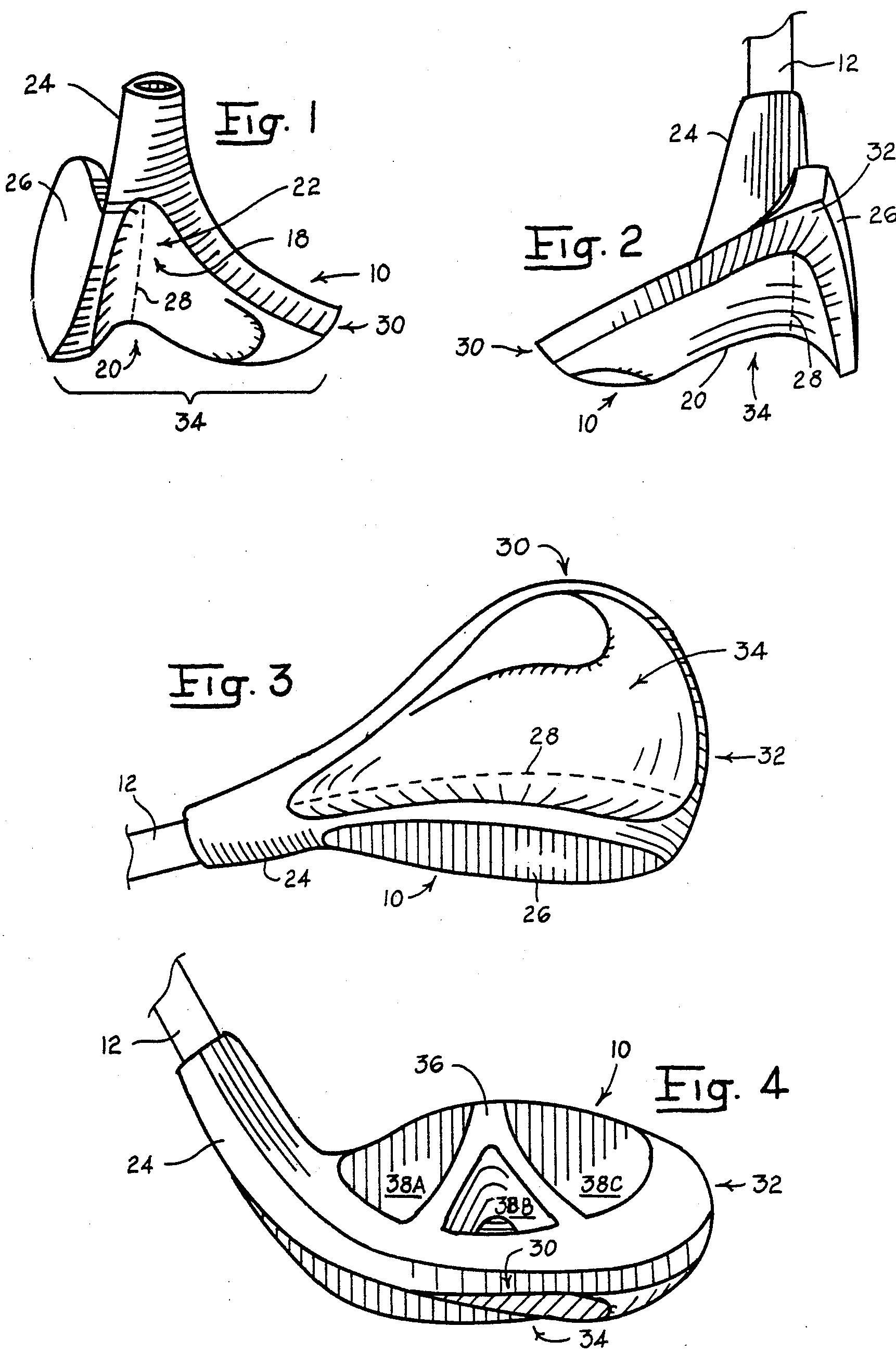Bizarre Golf Club Patent of the Week
Check out this club.

The drawings come from USPN 4,850,593 titled “Reduced Drag Club Head for a Wood Type Golf Club,” which provides a nice explanation for the unusual design:
The forgoing problems and shortcomings with prior art wood type golf club heads are resolved according to the instant invention which employs a sole trough whose root runs approximately parallel to the club face, is convex in the transverse (root line) direction and is concave in a direction perpendicular to the face of the club head. It is believed that downswing acceleration is more difficult to attain during the first part of the swing because of the requirement to overcome the high inertia of the zero velocity club at the beginning of the downswing. That is, it is believed that it takes more energy to overcome inertia and drag at the beginning of the downswing than at the point of contact even though it is recognized that there is a much higher drag force exerted at the end of the downswing because of the higher velocity at that time. However, it is believed that inertia is an aiding force rather than a hindering force just before club head/ball impact and that it is, on balance, more important to reduce drag in the early phase of the downswing in order to allow acceleration to a higher impact velocity at the moment of club head/ball impact.
Because the club head is presented to the air flow heel-first over the great majority of a classic golf downswing, the club head of the invention is designed to minimize the club head cross section and air drag when exposed to the air flow caused by approximately the first 225 degrees of a normal downswing portion of a golfer’s stroke. Furthermore, the troughlike shape is created in the sole area of a conventional club head. The surface of that trough is convex in vertical planes essentially parallel to the face of the club and is mostly concave in a series of cross-sectional vertical planes which are taken perpendicular to the face of the club head. These unique shapes are believed to reduce drag of the club head over at least 225 degrees of downswing by reducing the effective cross-sectional area perpendicular to the club head path and by presenting a more efficient airfoil to the air flow over about 225 degrees of the downswing.
It is therefore, an object of the invention to reduce the drag coefficient of a wood style golf club head during more than the first eighty percent of the downswing by reducing the cross-section of the club head in the vertical planes which lie perpendicular to the club head face.
It is another object of the invention to provide a complex surface curvature in a sole trough of a golf club head to improve the airfoil of the club head during more than the first eighty percent of the downswing.
Pretty interesting.
Dave Dawsey – Keeping an Eye on Wacky Golf Inventions
PS – click here to check out other driver and wood design posts
